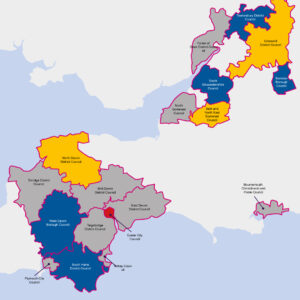On 28th August 2019, proposals to reform the housing market in favour of younger and first-time buyers were announced by the Government.
The central proposal under consideration was a change to shared ownership, with a reduction in the size of the instalments purchasers are required to buy to increase their holding of a shared ownership property from 10% to 1%. Another suggested policy was a reduction in price of a new home by 20% for buyers staying in the area in which they grew up.
The Housing Secretary, Robert Jenrick MP, admitted that while providing home ownership has been a key feature of the Conservative policy offer traditionally, progress on increasing the rates of ownership had ‘stalled’.
These proposals follow action by the previous Government to remove stamp duty for first time buyers of properties under £300,000 and reduce stamp duty to 5% for properties between £300,000 and £500,000.
The decline in home ownership among the young is seen as a significant electoral problem for the Conservatives, with the purchase of a home long considered as a central part of a process that makes people more likely to become Conservative voters as they grow older. The age at which people are more likely to vote Conservative has risen dramatically over the last few years and addressing that drift has become an existential need for the party. Home ownership among those in their twenties and thirties has almost halved in the last 30 years and addressing this decline has become a priority for policymakers.
By combating the inability of large portions of young, working, people to buy homes, the Conservatives are aiming to seize back the younger voters that have abandoned the party in recent years. However, Labour is also considering proposals to redress the housing market in favour of younger generations. Radical housing policies recently reported as being considered by the Labour Party include allowing private renters the right to buy, which would be the largest reshaping of the UK housing market since the original right to buy for council houses under Margaret Thatcher.
The properties would not necessarily be purchased at market rate, with Shadow Chancellor John McDonnell MP stating that “you’d want to establish what is a reasonable price” and that the Government would set this criterion. The renter would earn the right to buy after living in a rented property for a set amount of time, which adds a further question to the feasibility of the proposal – aside from an inevitable legal challenge – as landlords could simply not offer leases long enough to qualify, which would amplify the existing volatility of the rental market.
McDonnell also suggested increased taxes on landlords, claiming that landlords had made a ‘fast buck’ from right to buy and failed to maintain the buildings, depriving people of good quality housing. McDonnell did not include details of the prospective taxes, but it is clear that Labour plans to reshape the housing market drastically away from private renting. One possible tax that might be considered is the shifting of responsibility for council tax on rental properties from tenant to landlord.
While Brexit continues to dominate the news agenda, housing will remain one of the most critical issues any government will have to address. Both the Government and Labour have made proposals on how to change the housing market, and we will have to wait to see which resonates more with the public.


